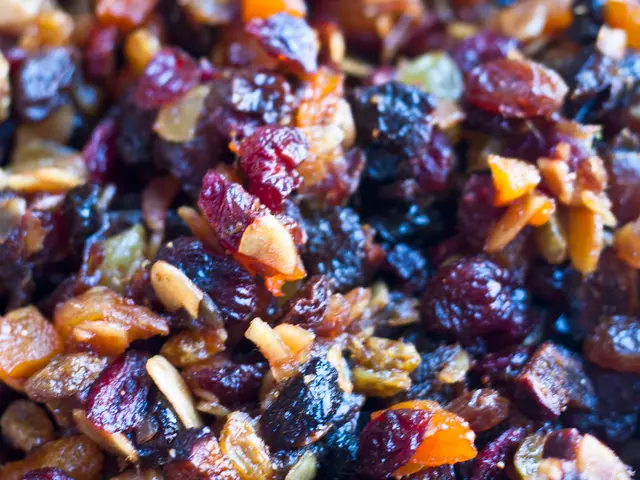Agent Orange's Persistent Legacy: The Plight of 3 Million Vietnam Victims
Half a century post Vietnam War combat: Millions continuing to grapple with chemical weapons consequences
Fast forward 50 years from the end of the Vietnam War, and about 3 million souls still struggle with the detrimental health impacts of a brutal conflict. Despite the South Vietnamese capital, Saigon, falling to Communist forces in 1975, the remnants of war continue to haunt a large portion of the Vietnamese population.
Agent Orange, a harmful concoction of herbicides used by US forces, is the main culprit behind these devastating health issues. Approximately 72 million liters of this chemical weapon were sprayed, with more than half causing extensive damage, especially in the fetal and childhood development stages.
One such individual feeling the brutal impacts of Agent Orange is 34-year-old Nguyen Thanh Hai. Daily tasks like buttoning a shirt, learning the alphabet, or simply forming a sentence are difficult obstacles for him due to his exposure to the chemical. Hai hails from Da Nang, a city heavily contaminated due to the massive amounts of Agent Orange left behind from a US airbase.
"The contamination has left a lasting impact on people in Vietnam, particularly affecting the 2nd, 3rd, and possible 4th generations," asserts Charles Bailey, co-author of "From Enemies to Partners: Vietnam, the US, and Agent Orange." The aftermath includes birth defects, physical and mental disabilities, and long-term health complications linked to the chemical's presence of dioxin, a dangerously potent compound.
Vietnam has been making strides in addressing war-induced toxic legacies for decades, with the US partially contributing to the cleanup efforts in the mid-2000s. However, these contributions are now under threat, causing millions of citizens to express worry over deteriorating conditions.
Looming USAID Cuts
The Trump administration significantly reduced US foreign aid, placing millions in Vietnam on edge as numerous dioxin hotspots continue plaguing 58 of its 63 provinces. In Da Nang, where an air base was tainted during Agent Orange's storage and transportation, US cleanup projects were completed in 2018, but an area equivalent to ten football fields still harbors severe contamination.
"The Agent Orange disaster has brought pain and misery to an estimated 4 million Vietnamese people," states Nguyen Van An, head of the Association for Victims of Agent Orange in Da Nang. "We firmly believe that the US government and the manufacturers of this toxic chemical must bear the responsibility to support the victims."
Chuck Searcy, an American Vietnam War veteran who has been working on humanitarian programs in the country since 1995, expressed concerns about the eroding trust between the US and Vietnam caused by these aid cuts.
"Those who benefit from US-funded projects to address war legacies have been victimized twice—once by the war itself and the consequences they've endured, and now by having the much-needed support withdrawn," Searcy warns.
Depleted Natural Defenses
The catastrophic loss of Vietnam's mangrove forests (half of which protected coastlines from storms) and the depletion of nutrients in affected regions are other dire consequences of Agent Orange. The toxic herbicide has left a grim mark on the country's tropical forests as well as its most climate-vulnerable zones.
For decades after the war's end, authorities fenced-off heavily contaminated sites (like Da Nang airport) and began offering aid to impacted families, while the US disregarded the severe long-term health implications of its chemical warfare—including those affecting its own veterans.
Moving Forward
Today, Vietnam identifies Agent Orange victims by scrutinizing their family history and residential records against a list of health complications linked to the poison. Authorities assume that the harmful effects endure across generations, impacting the health of the children, grandchildren, and even great-grandchildren of the exposed individuals.
Despite scientific uncertainty regarding the precise effects of Agent Orange on human health, it is clear that the catastrophic impacts of this chemical warfare still persist, and the need for traditional aid and support remains. Victims' advocates maintain that the US government and chemical manufacturers should take responsibility for the ongoing support of affected communities. While some stalled projects have resumed, the future of long-term US commitment hangs precariously in the balance.
- The lingering effects of Agent Orange, a harmful herbicide used during the Vietnam War, continue to be a significant concern, affecting 3 million Vietnamese people.
- The chemical's devastating impact can be seen in individuals like 34-year-old Nguyen Thanh Hai, who struggles with daily tasks due to his exposure.
- In an effort to address war-induced toxic legacies, Vietnam has been making strides, but the recent US aid cuts have caused uncertainty and worry over deteriorating conditions.
- These cuts have resulted in concerns about eroding trust between the US and Vietnam, especially for those who have been impacted by Agent Orange and rely on US-funded projects for support.
- In addition to the health implications, Agent Orange has also caused environmental damage, depleting nutrients in affected regions and devastating Vietnam's mangrove forests, leaving climate-vulnerable zones vulnerable.










